- Home
- Chris Ryan
Hunter Killer Page 10
Hunter Killer Read online
Page 10
He died at three minutes past six. The breathing suddenly stopped, the heart rate monitor flatlined. Clara didn’t do anything at first. She simply sat there holding his hand. Tears welled up in her eyes and trickled down her cheeks. Her friend Emily found her like that ten minutes later. She put one arm around her shoulders and gently disentangled Clara’s fingers from the child. Then she took her to have a cup of hot, sweet tea in the crowded hospital canteen. And then, seeing the dark rings of tiredness around her eyes, she sent Clara home.
Clara was tired. She had left Hereford at sunrise, just as Danny was heading in to base. He was able to function on a couple of hours’ sleep, but that wasn’t enough for Clara. Her lids were heavy and her limbs ached. She walked along the Edgware Road and out towards Maida Vale, huddled under her umbrella, the shins of her trousers soaked. When she arrived at the small ground-floor flat in a mansion block just by the canal which her parents had bought her on the promise that she would never – never – work for Médecins Sans Frontières again, she was bone-cold. She ran herself a hot bath, then slipped into her tracksuit. She’d only just finished getting dressed when the doorbell rang. She padded to the front door and looked through the spyhole. She saw Danny’s dark features, distorted by the lens and bedraggled by the weather. She didn’t know whether to feel glad to see him, or apprehensive about the severe look on his face.
She opened the door and forced a smile. ‘Hi,’ she said.
Danny didn’t reply.
‘Come on in.’
‘Let’s take a walk,’ he said.
The rain had stopped, but the sky was still heavy. ‘Right,’ she said, discouraged by the tone of his voice. ‘I’ll get my coat.’
They trod the streets in silence. As they left the flat, Clara felt for Danny’s hand. But he didn’t reciprocate like he normally did. They walked side by side without touching.
She wanted to tell him about her day, but for some reason couldn’t find the words. Or maybe she was scared to start a conversation, because she didn’t know where it would end.
‘I was at the hospital today,’ she said finally. ‘That kid – you know, the one I told you about? – finally died.’ They walked a little further. ‘Oh, God, I hope they find the people who did this. And I hope they put them in a British jail, not send them home where they’ll be treated like heroes.’
‘Don’t hold your breath,’ Danny muttered.
Clara stopped walking. ‘Why?’ she asked.
Danny gave her a look she’d seen before. A look that said: Don’t ask questions you know I can’t answer. She felt her hackles rising. ‘For God’s sake, Danny. You can trust me, you know.’
Danny suppressed a sneer. Clara thought she’d seen it all in Syria, that she was safe back here in London, but Danny knew that wasn’t true. London wasn’t all Beefeaters and bars. It was a place where bad things happened. The Iranian Embassy. God’s Banker. Litvinenko. Guys from both sides killed each other on the streets of London just as surely as they did in the shit-holes that ended up on Channel 4 news. And now Danny was one of their number. He was being sucked in.
‘The list of people I can trust,’ Danny said, ‘is getting shorter.’
Clara shook her head, confused. ‘What do you mean?’ She looked around. They’d been walking blindly, and she couldn’t remember what route they had taken. Somewhere in the distance she heard the traffic of the Edgware Road, but she saw they were standing outside a dilapidated United Reform church. Its red bricks were crumbling, its windows were boarded up and covered in graffiti – as was the road sign on it that said ‘Station Way’. An old metal padlock clamped the main doors shut.
Danny wouldn’t look at her. She put herself in his line of vision, but he just moved his head.
‘I can’t see you any more,’ he said quietly.
She’d been expecting it, but it was still like an ice-cold corkscrew in her heart. ‘Why?’ she whispered.
‘Does it matter why?’ Danny snapped. His brow was furrowed and he still refused to look at her.
‘It matters to me.’
Danny took a deep breath. He sounded like he was controlling his anger. ‘Go home, Clara,’ he breathed. ‘Go home and stay home. That’s my advice.’
Her eyes widened. ‘Stay home? What do you . . . oh my God, there’s going to be more, isn’t there? These awful bombings, there’s going to be more of them? Danny, I understand you’re worried about me, but you don’t have to do this . . .’
‘You’re not going to see me again, Clara. Get used to the idea.’
Clara tried to stop herself from crying, but she couldn’t. ‘Danny, you’re not thinking straight. It’s Syria, isn’t it? It’s affected you. I’ve told you before . . . you have to stop remembering the things you want to forget.’ She grabbed the hem of Danny’s jacket but he pulled it away. A loud sob escaped her lips.
She turned and ran away, her wellington boots splashing in the puddles as she went. She only looked back once, to see a dark figure standing in the lamplight by the church, casting a long shadow on the pavement, its head bowed, its hands deep in the pocket of its jacket.
Danny watched her go. Just before she reached the end of the side street and turned left into Edgware Road, he followed her. Once he was on the Edgware Road, he kept a distance of 30 metres, closely following the line of shops so he could disappear if she turned to look back. But she didn’t. She reached her flat five minutes later, let herself in, and was gone.
He felt sick. Sick with himself, and sick with everyone. He tried not to think of the distressed look in Clara’s eyes as he had rejected her. But that was impossible. Not only did he see her despair, he felt it in his gut.
But he knew one thing for sure. Right now, the best way for a person to be safe – no, the best way for Clara to be safe – was to stay away from him.
Because when death gets its claws in you, it never lets go.
He heard her voice ringing in his ears. You have to stop remembering the things you’re supposed to forget.
Sure, he thought to himself. But you also have to stop forgetting the things you’re supposed to remember. Like how death stuck to men like Danny and Spud like shit to a stick.
There’s going to be more, isn’t there? These awful bombings, there’s going to be more of them?
Yeah, he thought as he cast one final look at Clara’s mansion block. It’s not over yet.
It’s hardly even begun.
The Star of Damascus sold vegetables, rice and halal meat at bargain prices. There would be no point doing anything else, because this part of New Cross was not well-to-do. Unemployment was high, rents were cheap – and none so cheap as the small studio flat above the supermarket. The one room had thin, shiny carpets and smelled overwhelmingly of the rubbish rotting in the kitchen bin. There was a single, unmade bed at one end of the room, and a small table, at which a young man sat, his eyes staring wide at his computer screen.
He was exceedingly pleased with his computer. It was an old PC, very slow, but he didn’t mind that. He’d never had one before, and when his social worker had arranged an internet connection for him three months ago, it was as if that little flat had become a gateway to a world he never knew existed. She’d shown him how to send e-mails, how to read the BBC news website to stay up to date, and even how to access his bank account. But of course, he’d barely done any of this. He spent his days and nights staring at pornographic videos that even now made his hands tremble with excitement and gave him a thrill in the pit of his stomach. He liked it best when the girls looked directly into the camera. It was as if they were looking straight at him. Inviting him to join in. Sometimes he clicked on the banners at the right-hand side of the screen – the ones that offered to put him in touch with ‘fuck-buddies’ in his area. They always filled his screen with banner ads, but that didn’t stop him from trying again each day, sometimes more than once. He just couldn’t resist.
And in those moments when he wasn’t staring at porn, he was browsi
ng Twitter. It hadn’t taken long for him to discover that there were ladies out there who took pictures of themselves naked and tweeted the images. He followed them all, and sometimes sent them badly worded messages. They didn’t answer back, so he removed the photo from his profile. He knew that he looked different to most people. That his Down’s syndrome features sometimes made strangers cross the street to avoid him. They still didn’t answer back. His social worker told him he should put the photo back up. The way he looked was nothing to be ashamed of, she said.
And then, of course, there was Facebook. He didn’t have many friends, even though he had sent out lots of requests. And of the ‘friends’ he had, only a handful were people he knew in the real world. That didn’t worry him. He liked having friends of any description.
But as he logged on to his Facebook account that afternoon, when the air outside was thick with rain, he saw a ‘friend’ request that made his heart pound.
Her name was Nicki, and he could not stop staring at her profile picture. Her eyes were dark, her skin a dusky brown. The lips were full and pouting. The curly hair was shiny. There was a tempting cleavage that made him feel weak. In some ways, she reminded him of the girls from the websites he liked. But she was different in one very important way. He had met Nicki before. In real life.
It happened just a couple of days ago. He’d gone to the corner shop to buy some milk. On the way, he’d seen her walking alongside him. She was very pretty, and when he smiled at her, she smiled back. That never normally happened. Inside the shop, he found that he didn’t have enough money for the milk he wanted to buy. As he stood, confused and embarrassed, at the counter, there she was. She gave him the ten pence he needed, and he was sure she had fluttered her eyelashes at him. He’d gone to bed that night smitten. He’d even avoided looking at the internet. He felt that it would have been somehow unfaithful.
But now, here she was again, wanting to be friends.
And maybe she wanted something more.
He clicked the mouse to accept the ‘friend’ request.
Ten minutes later, she sent him her first message.
Part Two
Hunter Killer
Seven
21.30hrs
The safe house was dark when Danny arrived back. As he put his key in the lock, he wondered for a moment if Spud had sodded off to the pub. But the alarm didn’t beep, and there was a black jacket hanging over the banister as he stepped into the house. Looking along the hallway, he saw a faint greenish glow at the kitchen table. Spud was there, sitting in the darkness at his laptop. As Danny entered the kitchen he saw a carton of milk on the side and three used tea bags next to it. Spud raised his cup of tea in greeting. ‘Thought maybe you’d fucked off and joined the French Foreign Legion,’ he said sarcastically.
‘A few loose ends to tie up,’ Danny said evasively.
‘Oh aye? And what did that little turd Buckingham want?’
‘Catch up on old times.’ And when Spud raised an eyebrow, Danny said: ‘Forget about it. I told him where to get off.’ He looked at the laptop. ‘Anything?’
Spud nodded. ‘There was a draft message sitting on the account, just like twat-features said. We’ve got an ID and address for the first target.’
‘Just like that,’ Danny murmured. He pulled up a chair and sat down next to Spud at the laptop. An e-mail window was open. A single line of text gave an address:
GROUND FLOOR FLAT, 27 DALEWOOD MEWS, HAMMERSMITH, W14 6PS
And beneath that, embedded into the e-mail, a picture Danny recognised from the briefing back at Hammerstone: the gaunt, Somali features of Sarim Galaid.
‘Why didn’t they just give us the intel earlier on?’ Spud said. ‘Save all this fannying around.’
‘Obvious, isn’t it?’
‘Not to me, mucker.’
‘A dodgy draft e-mail on some random account? Could have been sent by anyone, to anyone. We’re doing something illegal and they want to make sure we take the fall if there’s a screw-up.’
Spud nodded darkly. ‘Perhaps,’ he said. He held up a couple of Yale keys. ‘Fletcher gave me these. The first-floor flat opposite number 27 is up for rent. But if you’re right, I’m guessing SIS didn’t sign the deposit cheque.’
Danny’s eyes narrowed. ‘I don’t like it. Too convenient. If our target’s got any kind of brains, he’d have checked that already.’
Spud shrugged, and stuffed the keys back into his pocket. ‘We don’t have to use it,’ he said, a bit huffily.
‘Have you checked out the location?’ Danny asked.
Spud closed down the e-mail and opened up a browser window, before navigating to Google maps. He typed in the address. In an instant, a glowing pin was floating above Dalewood Mews. With a single click, Spud changed the image to satellite view, then zoomed out slightly so they could get a decent scope on both the mews itself, and the surrounding area.
Dalewood Mews ran from north to south in the heart of a little network of residential streets on the west side of Hammersmith Grove. It was a cul-de-sac, with vehicular access at the south end only. No trees, and only three parked cars in this particular satellite snapshot. An enclosed space with almost no cover: from a surveillance point of view, a nightmare. At least, that was how it looked from here.
‘We need to get down there,’ Danny said. ‘Get eyes on, work out this Galaid’s routine.’
‘Then what?’ Spud asked.
‘He’s a bomber, isn’t he?’ said Danny. ‘If we cause an explosion at his flat and the place is full of bomb-making gear, no one will bat an eyelid. So we set things up so he meets with an accident.’
Spud grinned. The idea obviously appealed. ‘When do we start?’
Danny shrugged. ‘How does now suit you? This gaff isn’t so cushty I want to stick around any longer than I have to.’ And what he didn’t say was that a period of surveillance would keep his mind from other thoughts. He picked up his black rucksack from the floor where he’d dumped it that morning, then started unpacking it of crumpled clothes which he dumped on the kitchen table.
Spud watched him steadily. ‘You’re bushed, mate. Why don’t we catch some shut-eye, get started in the morning?’
Danny shook his head and walked over to the broom cupboard that contained the strong box. ‘I’m fine. And if he’s a night owl, we’ll lose twenty-four hours if we wait till morning.’
Spud inclined his head. He put one hand into his pocket and pulled out a small packet of tablets which he rattled to get Danny’s attention. There was no dispensing sticker on them.
‘What’s that?’ Danny asked.
‘Ephedrine,’ Spud said. ‘Breakfast of champions. Pop a couple now, keep you sharp for a few hours.’ And when Danny started to protest: ‘Just take them, mucker. You’re running on empty.’
Danny relented. He took the box of pills and swallowed two of the little caplets. Then he returned his attention to the strong box. He opened it up and started stowing the contents into his black rucksack: snap gun and bits, MOE kits, even the ration packs. He fitted one radio to his belt and inserted the covert earpiece, then handed the other to Spud.
‘Let me see the picture again,’ he said as he tightened the straps on his rucksack. Spud brought up a new browser window and redirected it back to the Gmail home page. He keyed in the username and password that Buckingham had given them. The mailbox appeared on the screen and Spud hovered the cursor over the drafts folder.
It was empty.
So, Danny thought. Our every move is being monitored. They know we’ve read the e-mail, so they’ve deleted it from the system.
Spud shut the computer down with an expression of disgust. ‘Good to know they trust us,’ he said.
Danny slung his rucksack over his shoulder. ‘Sooner this job’s finished, the better,’ he said. ‘Let’s go.’
It took half an hour for the ephedrine to kick in, by which time Danny was as alert as he’d ever been. They headed over Albert Bridge, then west along the north
side of the river, before coming to a crawl as they crossed the King’s Road, where the ever-present Met were stopping and searching cars at random. Danny got his ID ready, but in the event a uniformed policewoman waved them on. Ten minutes later they were heading down Talgarth Road and on to Hammersmith Broadway.
They left the car two blocks from Dalewood Mews, and debussed separately. Spud went first; Danny followed two minutes later, carrying his heavy rucksack and taking the opposite side of the street to Spud. He walked past a lap-dancing club, its windows blacked out and music throbbing inside. Twenty metres further on, a drunk couple were having an argument outside a gastropub, where the chairs were upside down on the tables. Danny sidestepped the arguing couple and continued on his way. The roads were lined with parked cars. Some enterprising person from an Indian takeaway had gone round sticking a flyer behind all the windscreen wipers, but the flyers hadn’t fared well in the drizzle – they were sticking to the windscreens and in some instances the wind had torn the paper, leaving only a portion of the flyer behind. Three minutes later, Danny was on the pavement opposite the entrance to Dalewood Mews. Spud had already entered the side street and was lurking at the far end, bent down on one knee as he pretended to do up his shoelace.
Danny spoke quietly into the mike clipped to his lapel. ‘What we got?’
‘Bugger-all,’ came the reply in his earpiece. ‘The ground-floor flat has a separate entrance, but if we’re going to put in surveillance, we’ll need access to one of the houses opposite. We can’t use a vehicle – it’ll stick out like a turd in a fruit salad.’
‘Maybe we can get into the first floor.’
‘Maybe.’ Spud didn’t sound keen, and with good reason. Moving into the flat above would involve drilling spyholes into the floor and all manner of noisy – and obvious – work.
‘Any sign of activity in the flat?’
‘Negative.’ Spud swore under his breath. ‘I reckon we’ve got days of surveillance. I fucking hate surveillance. And I bet the bastard’s not even at home anyway.’

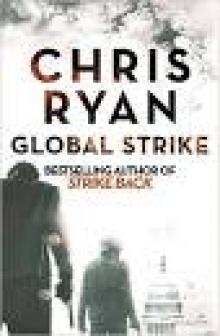 Global Strike
Global Strike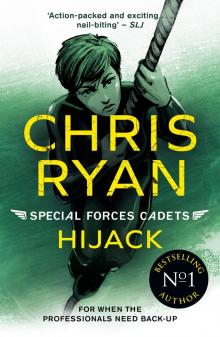 Hijack
Hijack Special Forces Cadets 2
Special Forces Cadets 2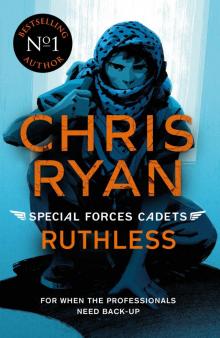 Ruthless
Ruthless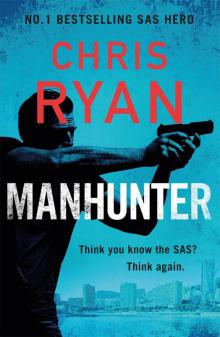 Manhunter
Manhunter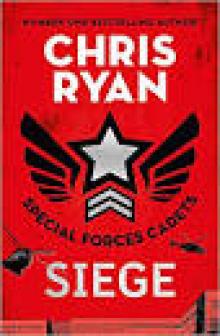 Special Forces Cadets 1
Special Forces Cadets 1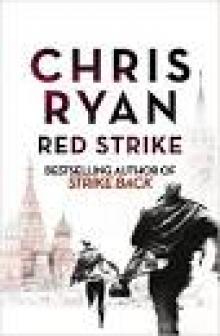 Red Strike
Red Strike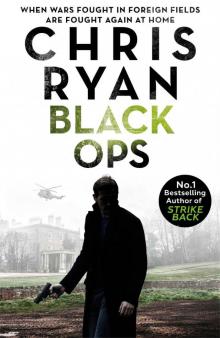 Black Ops
Black Ops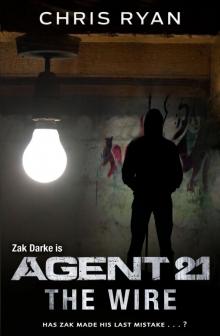 Agent 21: The Wire
Agent 21: The Wire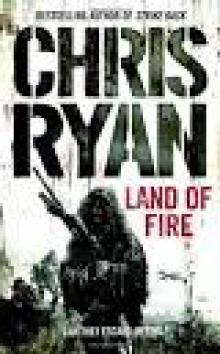 Land of Fire
Land of Fire Alpha Force: Fault Line
Alpha Force: Fault Line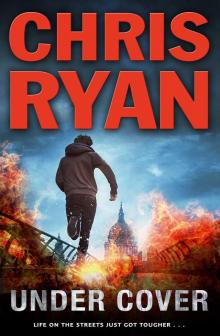 Under Cover (Agent 21)
Under Cover (Agent 21)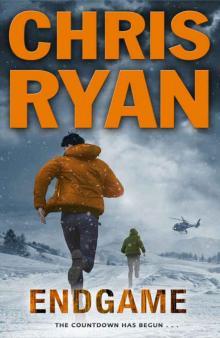 Endgame (Agent 21)
Endgame (Agent 21) Red Centre
Red Centre Blackout
Blackout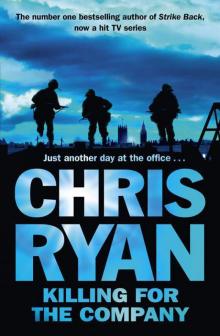 Killing for the Company
Killing for the Company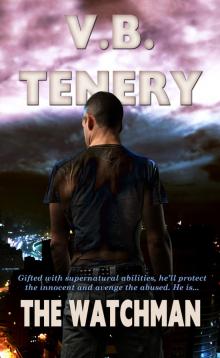 The Watchman
The Watchman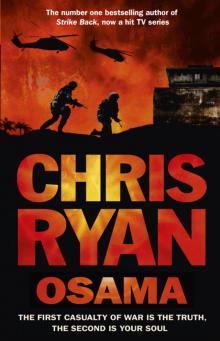 Osama
Osama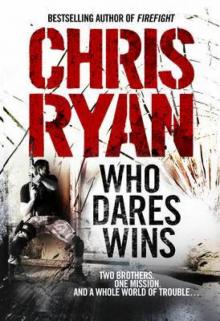 Who Dares Wins
Who Dares Wins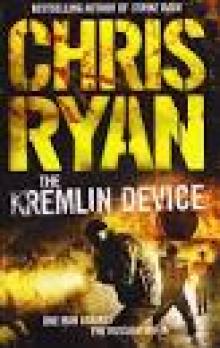 The Kremlin Device
The Kremlin Device Hunter Killer
Hunter Killer Alpha Force: Untouchable
Alpha Force: Untouchable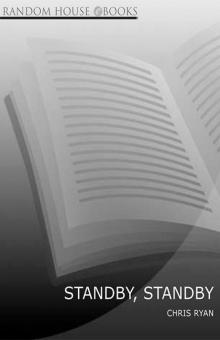 Stand By Stand By
Stand By Stand By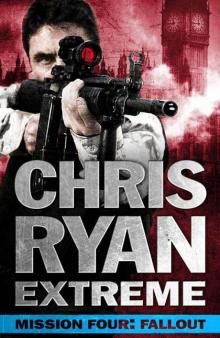 Chris Ryan Extreme: Hard Target: Mission Four: Fallout
Chris Ryan Extreme: Hard Target: Mission Four: Fallout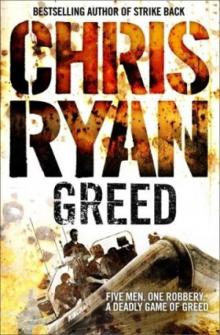 Greed mb-1
Greed mb-1 Alpha Force: Desert Pursuit
Alpha Force: Desert Pursuit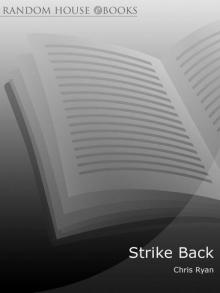 Strike Back
Strike Back Greed
Greed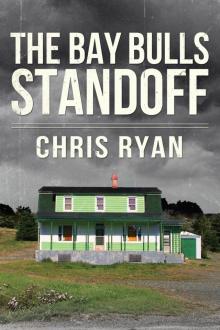 The Bay Bulls Standoff
The Bay Bulls Standoff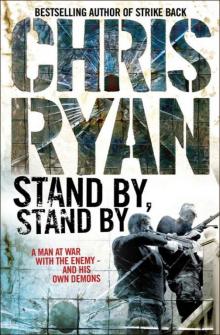 Stand By, Stand By gs-1
Stand By, Stand By gs-1 Outbreak
Outbreak Hunted
Hunted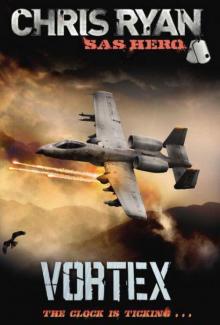 Vortex cr-4
Vortex cr-4 Rat-Catcher
Rat-Catcher Vortex
Vortex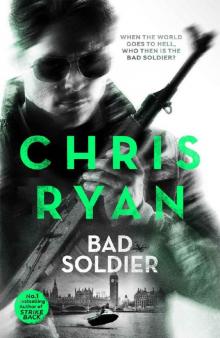 Bad Soldier
Bad Soldier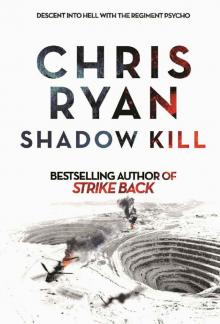 Shadow Kill: A Strikeback Novel
Shadow Kill: A Strikeback Novel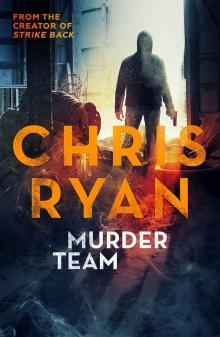 Murder Team (Kindle Single)
Murder Team (Kindle Single) One Good Turn
One Good Turn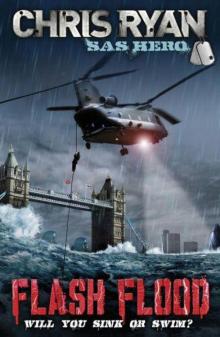 Flash Flood cr-1
Flash Flood cr-1 Night Strike
Night Strike Wildfire
Wildfire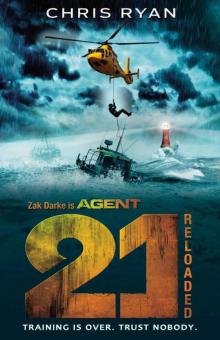 Agent 21: Reloaded: Book 2
Agent 21: Reloaded: Book 2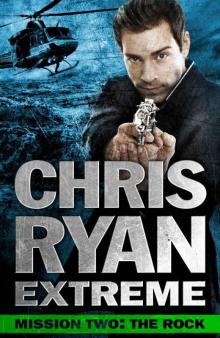 Chris Ryan Extreme: Hard Target: Mission Two: The Rock
Chris Ryan Extreme: Hard Target: Mission Two: The Rock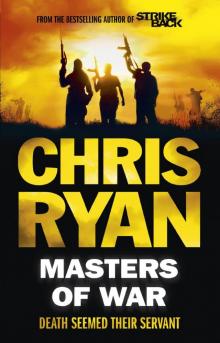 Masters of War
Masters of War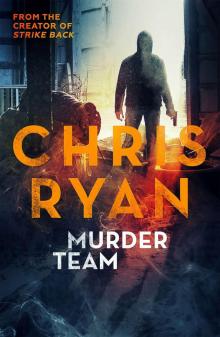 Murder Team
Murder Team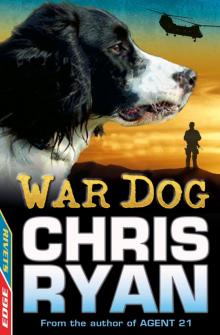 War Dog
War Dog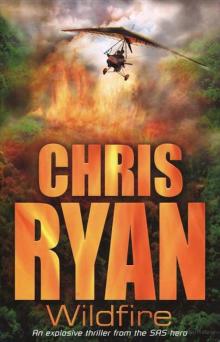 Wildfire cr-2
Wildfire cr-2 Survival
Survival The One That Got Away - Junior edition
The One That Got Away - Junior edition The Hit List
The Hit List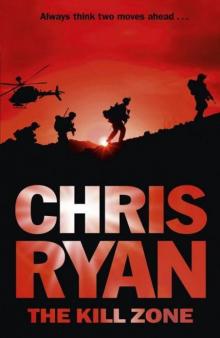 The Kill Zone
The Kill Zone Medal of Honor
Medal of Honor Battleground
Battleground Twister
Twister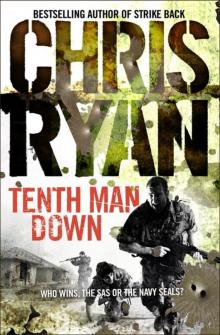 Tenth Man Down gs-4
Tenth Man Down gs-4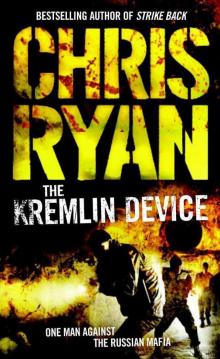 The Kremlin Device gs-3
The Kremlin Device gs-3 Hostage
Hostage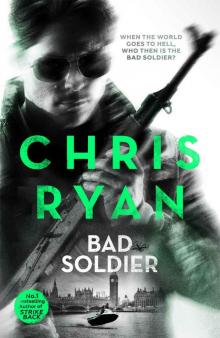 Bad Soldier: Danny Black Thriller 4
Bad Soldier: Danny Black Thriller 4 Alpha Force: Blood Money
Alpha Force: Blood Money Firefight
Firefight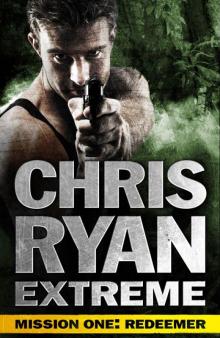 Chris Ryan Extreme: Hard Target: Mission One: Redeemer
Chris Ryan Extreme: Hard Target: Mission One: Redeemer Hit List
Hit List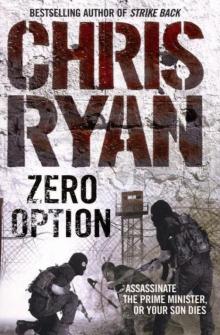 Zero Option gs-2
Zero Option gs-2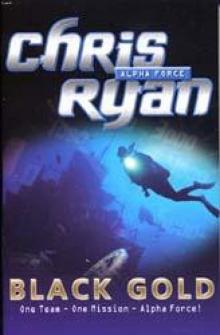 Black Gold
Black Gold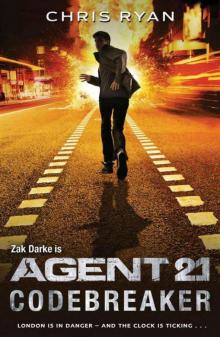 Agent 21: Codebreaker: Book 3
Agent 21: Codebreaker: Book 3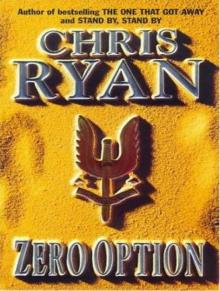 Zero Option
Zero Option Ultimate Weapon
Ultimate Weapon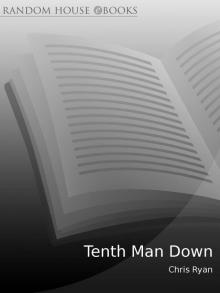 Tenth Man Down
Tenth Man Down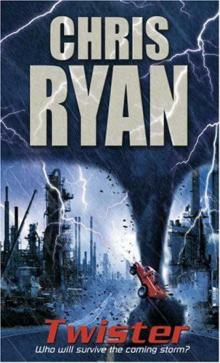 Twister cr-5
Twister cr-5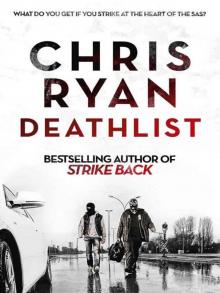 Deathlist
Deathlist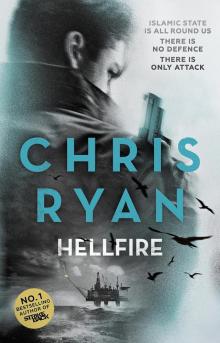 Hellfire
Hellfire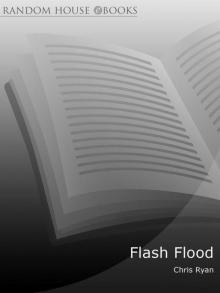 Flash Flood
Flash Flood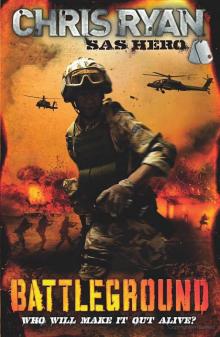 Battleground cr-6
Battleground cr-6 The Increment
The Increment